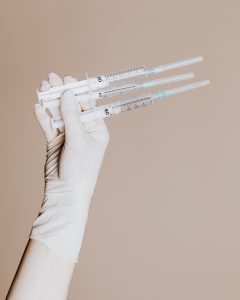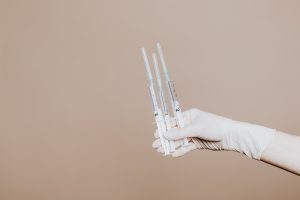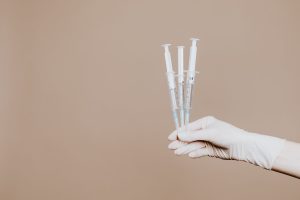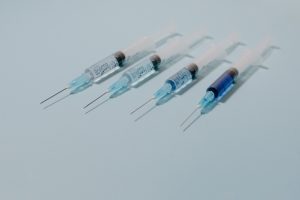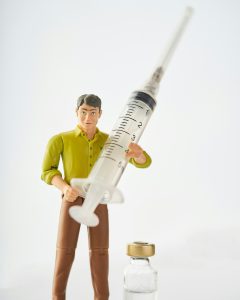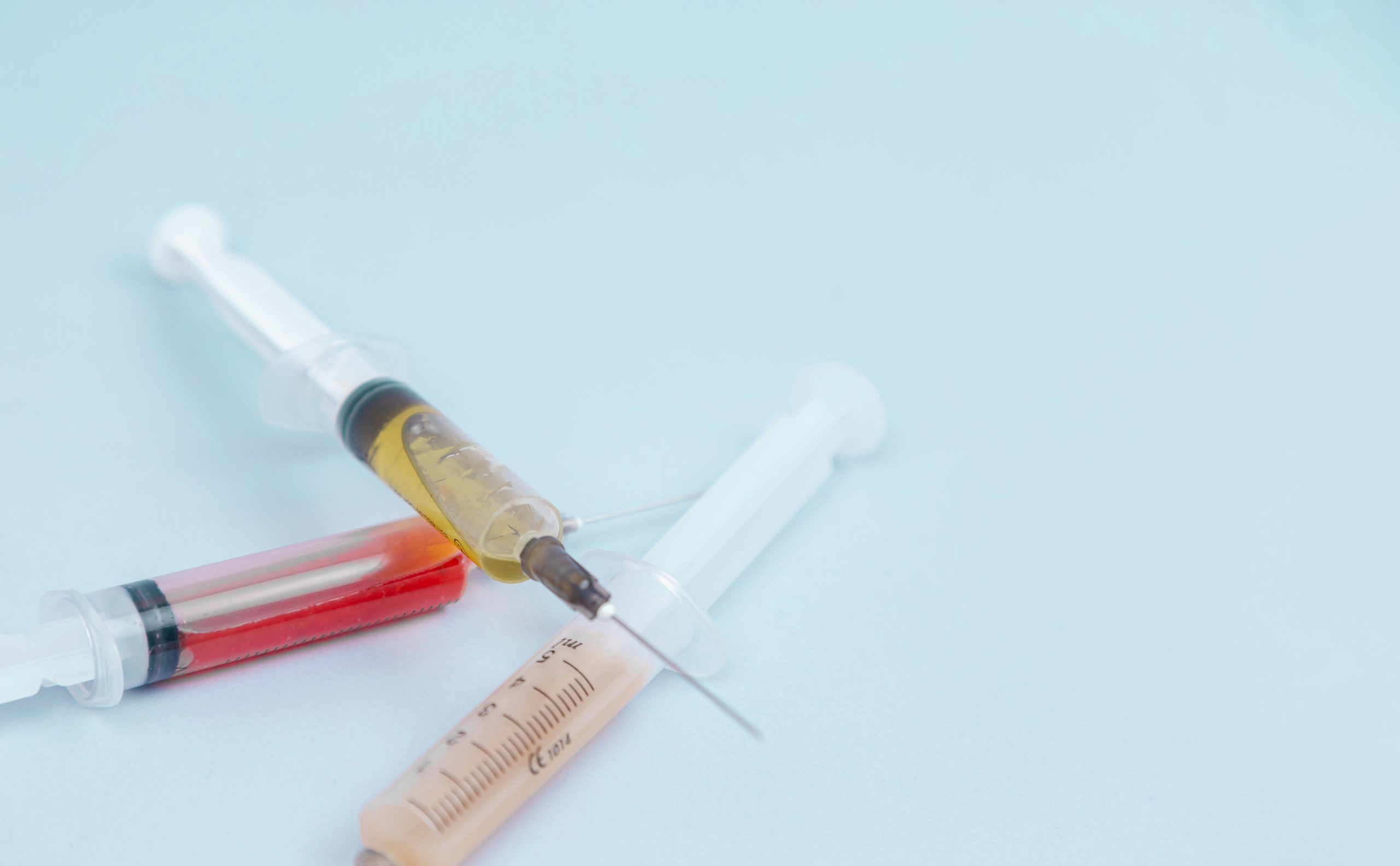
- What is Testosterone Cypionate?
- Brief History of Testosterone Cypionate
- How Does Testosterone Cypionate Work?
- What Are the Potential Benefits for Athletes?
- Are There Legal Implications for Athletes Using Testosterone Cypionate?
- What Are the Potential Side Effects of Testosterone Cypionate?
- Is Testosterone Cypionate Detectable in Drug Tests?
- Can Athletes Legally Use Testosterone Cypionate for Medical Reasons?
- How Is Testosterone Cypionate Administered?
- Is Testosterone Cypionate Addictive?
- Are There Alternatives to Testosterone Cypionate for Athletes?
What is Testosterone Cypionate?
Testosterone Cypionate is a synthetic form of the naturally occurring male sex hormone, testosterone. It belongs to the class of drugs known as androgens and is commonly prescribed for the treatment of low testosterone levels in men, a condition known as hypogonadism. This medication is administered through intramuscular injection and is slowly released into the bloodstream over a period of several days.
Testosterone is crucial for the development and maintenance of male reproductive tissues and is responsible for various physiological functions such as muscle mass, bone density, and the distribution of body fat. Testosterone Cypionate helps address symptoms associated with low testosterone, including fatigue, reduced libido, and mood changes.
Athletes and bodybuilders also sometimes misuse Testosterone Cypionate to enhance muscle growth and performance, although this is not medically approved and may lead to adverse effects. Like any medication, it carries potential side effects, and its use should be closely monitored by healthcare professionals to ensure safety and efficacy.
Brief History of Testosterone Cypionate
Testosterone Cypionate, a synthetic form of the male sex hormone testosterone, has a history closely tied to the development of testosterone replacement therapy (TRT). The synthesis and use of testosterone derivatives can be traced back to the mid-20th century.
In the 1950s and 1960s, pharmaceutical companies began to explore the development of synthetic testosterone compounds to address hormonal imbalances, particularly in cases of hypogonadism where the body produces insufficient testosterone. Testosterone Cypionate, along with other testosterone esters, was introduced as an injectable form to provide a slow-release mechanism, allowing for less frequent injections compared to some other formulations.
The U.S. Food and Drug Administration (FDA) approved Testosterone Cypionate for medical use in the United States. Since then, it has been a widely prescribed medication for treating conditions associated with low testosterone levels in men, such as hypogonadism.
Over the years, Testosterone Cypionate has gained popularity in the sports and bodybuilding communities, where it has been misused for performance enhancement. This has led to concerns about its potential for abuse and has prompted regulatory authorities to monitor its use more closely.
Despite its medical applications, the misuse of Testosterone Cypionate and similar compounds has raised ethical and health-related issues, prompting ongoing discussions about the appropriate use of testosterone replacement therapies.
| Year | Development |
|---|---|
| 1950s-60s | Exploration of synthetic testosterone compounds for TRT begins. |
| 1979 | Testosterone Cypionate approved by the FDA for medical use. |
| Present | Widely prescribed for treating low testosterone in men. |
| Present | Misuse in sports and bodybuilding raises concerns. |
| Present | Ongoing discussions about ethical use and regulation. |
How Does Testosterone Cypionate Work?
Testosterone Cypionate works by supplementing or replacing naturally occurring testosterone in the body. It is a synthetic form of testosterone, a key male sex hormone responsible for the development and maintenance of male reproductive tissues and various physiological functions.
When administered through intramuscular injection, Testosterone Cypionate is slowly released into the bloodstream over an extended period. Once in the body, it binds to androgen receptors in cells, particularly in tissues like the testes, prostate, liver, and skeletal muscles. The binding of testosterone to these receptors triggers a series of cellular events, influencing gene expression and protein synthesis.
Key mechanisms of how Testosterone Cypionate works include:
- Stimulation of Protein Synthesis:
- Testosterone promotes the synthesis of proteins, leading to increased muscle mass and strength.
- Enhancement of Nitrogen Retention:
- Testosterone promotes nitrogen retention in the muscles, aiding in the maintenance of a positive nitrogen balance essential for muscle growth.
- Inhibition of Glucocorticoid Hormones:
- Testosterone counteracts the catabolic effects of glucocorticoid hormones, such as cortisol, which can break down muscle tissue.
- Stimulation of Erythropoiesis:
- Testosterone stimulates the production of red blood cells in the bone marrow, contributing to improved oxygen-carrying capacity in the blood.
- Maintenance of Libido and Sexual Function:
- Testosterone is crucial for the development and maintenance of male sexual characteristics and the regulation of sexual function.
It’s important to note that Testosterone Cypionate should be used under the supervision of healthcare professionals, as improper use can lead to side effects and health risks. Additionally, its use for performance enhancement in sports is considered unethical and is often prohibited by anti-doping regulations.
What Are the Potential Benefits for Athletes?
While some athletes may seek to misuse testosterone for perceived performance benefits, it’s important to note that such use is not only unethical but also comes with significant health risks. The potential benefits athletes might be seeking are based on the known physiological effects of testosterone. However, these effects can be achieved through legal and ethical means, such as proper training, nutrition, and recovery strategies. Here are some potential benefits associated with the physiological effects of testosterone:
- Increased Muscle Mass and Strength:
- Testosterone plays a role in promoting protein synthesis, contributing to the development of lean muscle mass and increased strength.
- Improved Recovery:
- Testosterone may have a role in reducing muscle damage and promoting recovery after intense exercise, potentially allowing athletes to train more frequently.
- Enhanced Endurance:
- Testosterone can influence red blood cell production and oxygen-carrying capacity, potentially contributing to improved endurance.
- Increased Bone Density:
- Testosterone is essential for maintaining bone health, and adequate levels may contribute to improved bone density.
- Better Mood and Motivation:
- Testosterone is associated with mood and motivation, and some athletes may associate its use with increased aggression and competitiveness.
It’s crucial to emphasize that the misuse of testosterone or any other performance-enhancing substance is not only ethically questionable but also comes with serious health risks. These risks include cardiovascular problems, liver damage, hormonal imbalances, and psychological effects. Moreover, the use of testosterone for performance enhancement is against the rules of most sports organizations, and athletes caught using such substances may face severe consequences, including suspension and loss of titles or medals. Athletes should prioritize legal, ethical, and sustainable approaches to training and performance optimization.
Are There Legal Implications for Athletes Using Testosterone Cypionate?
Yes, there are legal implications for athletes using Testosterone Cypionate or any other form of testosterone without a legitimate medical prescription. The use of testosterone or other anabolic steroids for the purpose of performance enhancement is generally prohibited by most sports organizations and anti-doping agencies.
The World Anti-Doping Agency (WADA) and various national anti-doping agencies have strict rules and regulations regarding the use of performance-enhancing substances, including testosterone. Athletes who test positive for testosterone or its synthetic derivatives without a valid medical justification may face serious consequences, including:
- Suspension:
- Athletes who test positive for testosterone or related substances may be suspended from competition for a specified period.
- Loss of Titles and Medals:
- If an athlete is found to have used prohibited substances during a competition where they achieved success, they may be stripped of titles, medals, and any honors earned during that time.
- Fines:
- Some sports organizations may impose financial penalties on athletes who violate anti-doping rules.
- Bans from Future Competitions:
- Depending on the severity of the violation, athletes may face bans from future competitions, impacting their ability to participate in their sport.
- Damage to Reputation:
- The discovery of doping violations can result in significant damage to an athlete’s reputation, affecting endorsement deals, sponsorships, and overall public perception.
It’s essential for athletes to be aware of the anti-doping regulations specific to their sport and adhere to them. Before using any medication, including Testosterone Cypionate, athletes should consult with their healthcare providers to ensure that they have a legitimate medical reason for its use and that they comply with the relevant anti-doping rules. Engaging in doping practices not only jeopardizes an athlete’s career but also undermines the integrity of the sport.
What Are the Potential Side Effects of Testosterone Cypionate?
Testosterone Cypionate, like any medication, can have potential side effects. It’s important to note that these side effects can vary from person to person, and not everyone will experience them. Additionally, the likelihood and severity of side effects may depend on factors such as the dosage, duration of use, and individual response to the medication. Common side effects of Testosterone Cypionate include:
- Injection Site Reactions:
- Pain, swelling, or redness at the injection site may occur.
- Hormonal Changes:
- Testosterone supplementation can lead to hormonal imbalances, potentially causing side effects such as acne, oily skin, or changes in libido.
- Fluid Retention:
- Some individuals may experience fluid retention, leading to swelling in the ankles or feet.
- Gynecomastia:
- The use of testosterone can sometimes lead to the development of breast tissue in men, a condition known as gynecomastia.
- Changes in Mood:
- Mood swings, increased aggression, or irritability may occur in some individuals.
- Sleep Apnea:
- Testosterone use has been associated with an increased risk of sleep apnea, a condition characterized by interrupted breathing during sleep.
- Elevated Red Blood Cell Count:
- Testosterone can stimulate the production of red blood cells, potentially leading to an increase in hematocrit levels. This may pose a risk of blood clots.
- Decreased Sperm Production:
- Exogenous testosterone can suppress the body’s natural production of sperm, leading to a decrease in fertility.
- Liver Issues:
- Prolonged use or misuse of testosterone may potentially impact liver function.
It’s crucial for individuals using Testosterone Cypionate to do so under the guidance and supervision of a healthcare professional. Regular monitoring of hormone levels and overall health is essential to manage potential side effects and adjust the treatment plan if necessary. Individuals with a history of certain medical conditions, such as cardiovascular disease or prostate issues, may be at a higher risk of experiencing specific side effects, and their use of testosterone should be carefully monitored.
Is Testosterone Cypionate Detectable in Drug Tests?
Yes, Testosterone Cypionate is detectable in drug tests, particularly in the context of anti-doping testing conducted by sports organizations and competitions. Testing for testosterone and its synthetic derivatives is common in sports to ensure fair competition and to detect the use of performance-enhancing substances.
Athletes are subject to various forms of drug testing, including urine and blood tests, to check for the presence of prohibited substances, including exogenous (external) testosterone. Anti-doping agencies, such as the World Anti-Doping Agency (WADA) and national anti-doping organizations, use sophisticated testing methods to detect the use of testosterone and related compounds.
The detection of exogenous testosterone involves analyzing the ratio of testosterone to epitestosterone (T/E ratio) in a urine sample. The normal T/E ratio in the general population is approximately 1:1, but the World Anti-Doping Agency (WADA) has established a threshold T/E ratio of 4:1. If an athlete’s T/E ratio exceeds this threshold, further analysis may be conducted to determine whether the elevated ratio is due to natural variations or the use of exogenous testosterone.
It’s important for athletes to be aware that the use of Testosterone Cypionate or other forms of testosterone without a valid medical prescription is considered doping and can result in serious consequences, including suspension, loss of titles and medals, fines, and damage to one’s reputation. Athletes should always comply with anti-doping regulations and consult with medical professionals to ensure that any medications they use are within the rules of their respective sports organizations.
Can Athletes Legally Use Testosterone Cypionate for Medical Reasons?
Athletes can use Testosterone Cypionate or any other form of testosterone for legitimate medical reasons if prescribed by a licensed healthcare professional to address a documented medical condition. Testosterone replacement therapy (TRT) is a medical intervention commonly prescribed for individuals diagnosed with hypogonadism, a condition characterized by abnormally low testosterone levels.
The key factors for legal and ethical use of Testosterone Cypionate or any testosterone replacement therapy in sports include:
- Valid Medical Prescription:
- Athletes must have a valid medical prescription from a licensed healthcare provider for the use of Testosterone Cypionate. The prescription should be based on a thorough evaluation of the individual’s health and hormone levels.
- Documentation of Medical Need:
- The athlete should have documented evidence of a medical need for testosterone replacement, such as blood tests indicating low testosterone levels and symptoms of hypogonadism.
- Disclosure to Anti-Doping Authorities:
- Athletes using prescribed testosterone replacement therapy are often required to disclose this information to anti-doping authorities, such as WADA (World Anti-Doping Agency) or national anti-doping agencies. This is typically done through a Therapeutic Use Exemption (TUE) process.
- Compliance with Anti-Doping Rules:
- Athletes must comply with the anti-doping rules and regulations of their respective sports organizations. This includes adhering to the specific procedures and requirements for obtaining a Therapeutic Use Exemption if using prescribed testosterone.
It’s crucial for athletes to follow the proper procedures and adhere to the guidelines set by anti-doping authorities and sports organizations. The misuse of testosterone or any other performance-enhancing substances without a valid medical justification is against the rules of most sports organizations and can result in serious consequences, including suspension, loss of titles and medals, fines, and damage to one’s reputation.
How Is Testosterone Cypionate Administered?
Testosterone Cypionate is typically administered through intramuscular injection. This means that the medication is injected directly into the muscle tissue. The injection is usually given in the gluteal (buttocks) muscle, specifically the upper, outer quadrant, but it can also be administered in the thigh muscles.
Here are general steps for administering Testosterone Cypionate:
- Preparation:
- Ensure that the medication is at room temperature. Clean the vial or ampule with an alcohol swab.
- Aspiration:
- If using a syringe, pull back slightly on the plunger after inserting the needle to check for blood. If blood is drawn into the syringe, reposition the needle before injecting to avoid entering a blood vessel.
- Injection Site:
- The typical injection site is the upper, outer quadrant of the gluteal muscle. Alternatively, the injection can be given into the thigh muscle. Clean the injection site with an alcohol swab.
- Needle Insertion:
- Insert the needle into the muscle at a 90-degree angle. For individuals with less body fat, a 45-degree angle may be appropriate.
- Injection:
- Administer the injection slowly and steadily. After injecting the medication, withdraw the needle at the same angle it was inserted.
- Post-Injection:
- Apply gentle pressure to the injection site with a sterile cotton ball or swab. You may also choose to massage the area briefly.
It’s important for individuals to receive proper training from a healthcare professional on how to self-administer Testosterone Cypionate injections if they are doing it at home. The frequency and dosage of injections will be determined by the prescribing healthcare provider based on the individual’s medical condition and needs.
Note: Always follow the specific instructions provided by the healthcare provider, and never self-administer any medication without proper guidance.
Is Testosterone Cypionate Addictive?
Testosterone Cypionate itself is not considered addictive in the same way that substances like opioids or certain recreational drugs can be. However, it’s important to note that the misuse or abuse of testosterone and other anabolic steroids, including Testosterone Cypionate, can lead to psychological and physical dependence.
Misuse of testosterone often involves taking doses higher than those prescribed by a healthcare professional or using it without a legitimate medical need. Some individuals, including athletes and bodybuilders, may misuse testosterone in an attempt to enhance athletic performance or physical appearance. This can lead to several potential issues:
- Psychological Dependence:
- Some individuals may become psychologically dependent on the effects of testosterone, such as increased muscle mass or improved athletic performance.
- Abuse and Overuse:
- The misuse of testosterone, especially in higher-than-prescribed doses, can lead to adverse effects and health risks. Excessive and prolonged use may result in serious medical conditions.
- Withdrawal Symptoms:
- Abruptly discontinuing the use of testosterone after prolonged misuse may lead to withdrawal symptoms. These can include fatigue, irritability, mood swings, and decreased libido.
While physical dependence on testosterone is not as well-established as with some other substances, the potential for misuse and associated health risks is a concern. Individuals should only use testosterone, including Testosterone Cypionate, under the supervision of a qualified healthcare professional, and for legitimate medical purposes such as treating hypogonadism. Misuse without proper medical oversight can have serious consequences for both physical and mental health.
Are There Alternatives to Testosterone Cypionate for Athletes?
Athletes seeking alternatives to Testosterone Cypionate for performance enhancement should focus on legal and ethical methods to optimize their training, recovery, and overall well-being. It’s important to note that the use of testosterone or other anabolic steroids without a valid medical prescription is considered doping and is against the rules of most sports organizations.
Legal and ethical alternatives to Testosterone Cypionate for athletes include:
- Optimized Training Programs:
- Working with qualified coaches and trainers to develop personalized and effective training programs can lead to improved performance without the need for performance-enhancing substances.
- Nutrition and Supplements:
- Proper nutrition, including adequate protein intake and balanced macronutrients, is crucial for athletic performance. Legal and safe dietary supplements may also support training and recovery.
- Recovery Strategies:
- Prioritizing adequate rest, sleep, and recovery strategies such as massage, stretching, and ice baths can enhance an athlete’s ability to perform optimally.
- Legal Performance Enhancers:
- Some legal performance enhancers, such as caffeine or creatine, have been shown to have positive effects on athletic performance and are widely accepted in the sports community.
- Mental Training:
- Mental aspects, such as focus, motivation, and mental resilience, are crucial for athletic success. Engaging in mental training techniques, including visualization and goal-setting, can be beneficial.
- Medical Evaluation:
- Athletes experiencing symptoms of fatigue, low energy, or decreased performance should undergo a thorough medical evaluation to identify and address any underlying health issues.
It’s important for athletes to prioritize their health and long-term well-being while adhering to the rules and regulations of their respective sports organizations. Seeking shortcuts through the misuse of substances like Testosterone Cypionate can have serious consequences, both in terms of health risks and potential disciplinary actions. Athletes should always consult with healthcare professionals and follow ethical training methods to achieve their goals.


